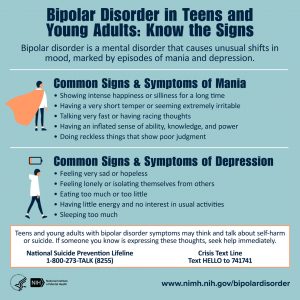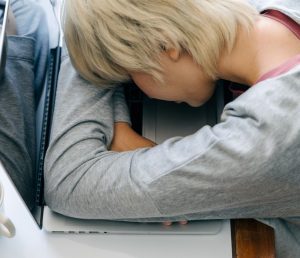COVID-19 Racism Takes Toll on Chinese Americans’ Mental Health
 Chinese Americans are experiencing more racial discrimination and it appears to be affecting their mental health, according to a convenience sample survey. Read more ›
Chinese Americans are experiencing more racial discrimination and it appears to be affecting their mental health, according to a convenience sample survey. Read more ›
 Chinese Americans are experiencing more racial discrimination and it appears to be affecting their mental health, according to a convenience sample survey. Read more ›
Chinese Americans are experiencing more racial discrimination and it appears to be affecting their mental health, according to a convenience sample survey. Read more ›
 Covid-19 has increased anxiety for many of us, and experts warn a sizable minority could be left with mental health problems that outlast the pandemic. Read more ›
Covid-19 has increased anxiety for many of us, and experts warn a sizable minority could be left with mental health problems that outlast the pandemic. Read more ›
It’s important to develop some coping strategies so that you can stay resilient during these anxiety-filled times. In this webinar, Patrice Crisostomo, PhD, Clinical Program Manager and Licensed Psychologist at CHC and Cara DiClemente, MA, Doctoral Psychology Intern at CHC relay some valuable strategies that you can use as you cope with the constant change and anxiety in your life right now. Read more ›
 The length of physical activity that health experts recommend students get each day is 60 minutes. In the current environment, most are lucky if they get close to that. Read more ›
The length of physical activity that health experts recommend students get each day is 60 minutes. In the current environment, most are lucky if they get close to that. Read more ›
 We are living in uncertain times. No one knows exactly how or when this coronavirus pandemic will end — or what it will mean for our lives and the lives of our loved ones in the future.
We are living in uncertain times. No one knows exactly how or when this coronavirus pandemic will end — or what it will mean for our lives and the lives of our loved ones in the future.
This pandemic that we’re all going through feels unprecedented — but the feeling of uncertainty is not. People live through all kinds of scary things all the time. Here are seven tips for dealing with uncertainty from people who’ve been there. Read more ›
 Bipolar disorder is a mental disorder that causes unusual shifts in mood, marked by episodes of mania and depression. Bipolar disorder is not the same as the typical ups and downs every kid goes through. The mood swings are more extreme and accompanied by changes in sleep, energy level, and the ability to think clearly. Know the signs and symptoms. Read more ›
Bipolar disorder is a mental disorder that causes unusual shifts in mood, marked by episodes of mania and depression. Bipolar disorder is not the same as the typical ups and downs every kid goes through. The mood swings are more extreme and accompanied by changes in sleep, energy level, and the ability to think clearly. Know the signs and symptoms. Read more ›
 With much of education being delivered in a virtual environment during the pandemic, monitoring students’ mental health is harder, but more critical than ever. Some of the same indicators of distress apply as much in the virtual classroom as in the physical one, such as difficulty participating in class, poor attendance, frequently reporting illness and not completing assignments. But other indicators, such as on-screen interactions with family members and turning off the camera, are new to distance learning. Read more ›
With much of education being delivered in a virtual environment during the pandemic, monitoring students’ mental health is harder, but more critical than ever. Some of the same indicators of distress apply as much in the virtual classroom as in the physical one, such as difficulty participating in class, poor attendance, frequently reporting illness and not completing assignments. But other indicators, such as on-screen interactions with family members and turning off the camera, are new to distance learning. Read more ›
 As recent months have demonstrated, stress is unavoidable. Now more than ever, it’s important to understand stress and how we can manage it. While stress can be beneficial, too much of it can be harmful. Read more ›
As recent months have demonstrated, stress is unavoidable. Now more than ever, it’s important to understand stress and how we can manage it. While stress can be beneficial, too much of it can be harmful. Read more ›
 If ever there were a time for people to know the important skills that make up what mental health experts refer to as “psychological first aid,” a pandemic is it. Like regular first aid, PFA is a way of helping someone in pain — except rather than cleaning and bandaging a cut or applying ice to a sprained ankle, you tend to someone’s anxiety or distress in a way that will ease it and help restore a sense of equanimity. Read more ›
If ever there were a time for people to know the important skills that make up what mental health experts refer to as “psychological first aid,” a pandemic is it. Like regular first aid, PFA is a way of helping someone in pain — except rather than cleaning and bandaging a cut or applying ice to a sprained ankle, you tend to someone’s anxiety or distress in a way that will ease it and help restore a sense of equanimity. Read more ›
 It’s hard to avoid stress. Work, money, current events, and the hassles of everyday life are just a few of the things that can cause stress. Long-term, or chronic, stress is linked to several health conditions like heart disease, high blood pressure, diabetes, depression, and anxiety.
It’s hard to avoid stress. Work, money, current events, and the hassles of everyday life are just a few of the things that can cause stress. Long-term, or chronic, stress is linked to several health conditions like heart disease, high blood pressure, diabetes, depression, and anxiety.
It’s important to learn how to manage stress so it doesn’t overwhelm you. Read more ›